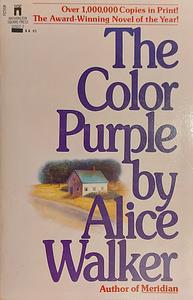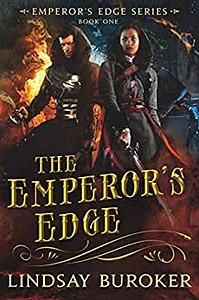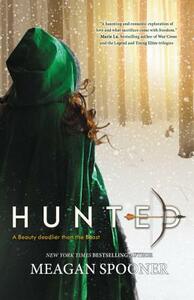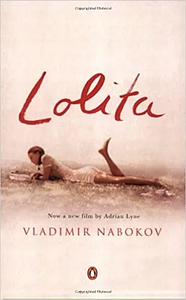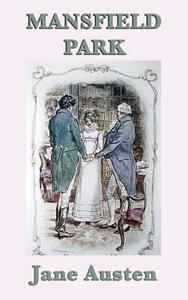Take a photo of a barcode or cover
rebeccazh's Reviews (2.89k)
This is such a cute book. What a delightful read. Of course, what made it was Althea. I love competent women.
June 2017: reread in preparation for [b: The Raven Stratagem|30691976|Raven Stratagem (The Machineries of Empire #2)|Yoon Ha Lee|https://images.gr-assets.com/books/1466524955s/30691976.jpg|51237351] and I understood more than I did the first time round. It's amazing how quickly I get attached to Cheris and Jedao. Onward to [b: The Raven Stratagem|30691976|Raven Stratagem (The Machineries of Empire #2)|Yoon Ha Lee|https://images.gr-assets.com/books/1466524955s/30691976.jpg|51237351] now and I hope it knocks my socks off.
so. damn. good. can't wait to read the sequel
so. damn. good. can't wait to read the sequel
Just realized I didn't write a review for this. I love Celie. There's something so likeable about her; I was drawn to her from the very first letter and I just devoured this book in one sitting. I love the letter format, I love the subtle switch from 'Dear God' to 'Dear Nettie' -- the final chains falling free. I also really appreciated Celie's desire/love for Shug, Shug's bisexuality, the community and friendships Celie gains, and most of all, the spirituality pervading the book. I think this is one of the favorite quotes I've ever read: I think us here to wonder, myself. To wonder. To ask. And that in wondering bout the big things and asking bout the big things, you learn about the little ones, almost by accident.
I read this after reading the Echo's Wolf series and I prefer that... I only like romances when the hero isn't too macho/dominant/alpha male. Love Lia Silver's works though, I will so check out the other stuff she's written under her other names.
I actually enjoyed this quite a lot, though I won't be reading the sequels. The greatest strength of this book is definitely Amaranth. She's curious and focused and really (unintentionally) funny. Her thought processes are so entertaining and enjoyable to read. I'd recommend this book just on the strength of her voice.
Buuuut what I didn't like so much was that this is a world in which gender discrimination and stereotypes are part of its fabric. Glass ceilings for women, ideas about how women and men should behave... Didn't really like that.
Buuuut what I didn't like so much was that this is a world in which gender discrimination and stereotypes are part of its fabric. Glass ceilings for women, ideas about how women and men should behave... Didn't really like that.
with that main character's name, I was expecting bad writing. but surprisingly, this was pretty enjoyable and the worldbuilding was interesting. the characters are likeable and I liked reading about them. the plot was a little predictable, but still very enjoyable to read. I appreciated the diverse cast a lot. I thought the strongest part of the book was definitely that first chapter. hooked me in effortlessly.
...I forgot I've read this book. It was a pretty decent B&B retelling, if I remember correctly. I liked that Yeva's hunting skills are focused on, and the way her burgeoning trust in the Beast unfolded was pretty heartwarming to read. I liked the lore about the Firebird.
So, after many years, I finally read this book. I think all that I want to say has been said already, but here are my thoughts: I love Nabokov's writing. Reading Humbert Humbert's narration repels but attracts me; it's beautiful, and it makes me so grossed out that such a disgusting topic can be made so beautiful.
Lolita, the girl, is both the Other and the Object. I distrust every claim Humbert Humbert makes about her -- he has never seen her; he only sees her as an object of desire/dream made flesh. Poor girl. It boils my blood to see articles or people claim that this is a love story. It emphatically is not. Occasional hints of truth peek out from Humbert Humbert's slippery narration, where he says things like:
"This was an orphan. This was a lone child, an absolute waif, with whom the heavy-limbed, foul-smelling adult had had strenuous intercourse three times that very morning."
I mean. You can't get clearer than that. But looking at the reception to this book, the fact that 'Lolita' has come to stand in for a sexually precocious girl, just disgusts me. It's a special kind of awful that we're in a world where a self-professed paedophile and murderer is romanticized as a tragic but devoted sort of lover, because we're so used to romanticizing possessive/abusive/controlling behavior by men. Or that girls want to be that nymphet/sexual siren Humbert claims twelve-year-old Lolita is. Because the thing about Lolita is that she is attractive to Humbert not for her sexual precociousness; it's precisely because she is not sexually mature that he lusts after her.
This novel really reminds me of an outsider's view (an outsider who found a home) of America, because of Nabokov's enamoured/fascinated, love-hate relation to American consumerism: the post-WWII culture of bad TV, consumer goods, jukeboxes, bad movies... Love the jabs he took at Freud. I can't stand Freud. The world Nabokov depicts is quintessentially American: even young girls are consumer goods.
Lolita, the girl, is both the Other and the Object. I distrust every claim Humbert Humbert makes about her -- he has never seen her; he only sees her as an object of desire/dream made flesh. Poor girl. It boils my blood to see articles or people claim that this is a love story. It emphatically is not. Occasional hints of truth peek out from Humbert Humbert's slippery narration, where he says things like:
"This was an orphan. This was a lone child, an absolute waif, with whom the heavy-limbed, foul-smelling adult had had strenuous intercourse three times that very morning."
I mean. You can't get clearer than that. But looking at the reception to this book, the fact that 'Lolita' has come to stand in for a sexually precocious girl, just disgusts me. It's a special kind of awful that we're in a world where a self-professed paedophile and murderer is romanticized as a tragic but devoted sort of lover, because we're so used to romanticizing possessive/abusive/controlling behavior by men. Or that girls want to be that nymphet/sexual siren Humbert claims twelve-year-old Lolita is. Because the thing about Lolita is that she is attractive to Humbert not for her sexual precociousness; it's precisely because she is not sexually mature that he lusts after her.
This novel really reminds me of an outsider's view (an outsider who found a home) of America, because of Nabokov's enamoured/fascinated, love-hate relation to American consumerism: the post-WWII culture of bad TV, consumer goods, jukeboxes, bad movies... Love the jabs he took at Freud. I can't stand Freud. The world Nabokov depicts is quintessentially American: even young girls are consumer goods.
I... just finished this book and I'm kind of internally screaming at this ending. This is not like any other Austen book I've read, at all. I've never felt so incredulous/dissatisfied/shocked.
First, I really like Fanny. Being an introvert who has anxiety, I really relate to her. I'm impressed by her fortitude in remaining unwavering in her opinions despite opposition from everyone around her, doubtful and frightened but choosing to do the right thing. I don't know if I could do that. Standing up to a group of people whose opinion you value takes courage. Psychological realism-wise, I think Austen really captured the effects neglect and even abuse could have on someone who is gentle. I know people like her. Fanny's frequent fears and anxieties, her timid and passive nature, her submissiveness, her gentle and sweet character, etc, all that are familiar to me; she feels real. I was sorry for the intense stress she suffered because of Crawford's proposal and everyone trying to pressure her into marriage. That's a really tough situation, especially with her precarious position in the household.
This book seems to be about nature versus nurture, and privilege versus the neglected/disadvantaged/sidelined. For the young people in this book, these issues overlap. The Crawfords are an example of undesirable upbringing, and Fanny and Susan are examples of strong moral character, despite neglectful and underprivileged home environments. Parental figures and family can have powerful influences on one's character, for good and for ill. And, in the case of the latter, if one doesn't have a strong moral character, one will almost inevitably be an unthinking product of one's negative upbringing/environment. Privilege weakens one's character. Maria Bertram's folly was ascribed entirely to the spoiled and privileged upbringing she enjoyed, with Mrs Norris as her enabler. The Crawfords are not malicious or ill-intentioned, but their ignorance and unwise decisions stem from the kind of insensitivity and insensibility that bad upbringing fosters. Everyone has lessons to learn, even Fanny.
(This book is also very honest, compared to what I'm used to from Austen -- mentions of servitude, slavery, war... I like that Fanny is the main character. She is neglected, overlooked, and in a slave-like position, and I appreciate that it's her experiences being championed here.)
I liked Edmund at first, because of the kindness he showed young Fanny, but he soon grows to be quite... patronizing and self-serving? The episode with Mary reveals his hypocrisy, and it's not pleasant to see. Because of his attraction to Mary, he frequently excuses her flaws, has double standards that benefit and excuse her, and acts in a generally hypocritical way so that he doesn't have to see her for what she is. I am sympathetic of Fanny's position with Edmund. It's hard to keep quiet when someone you care about seems determined to go for someone callous and untrustworthy. Not only that, his interactions with Fanny also show a patronizing and blind treatment of her -- he doesn't see Fanny clearly, either.
Mary Crawford is interesting. I actually liked her (with some reservations). Situated as I am in 2017, I find her behavior more acceptable than Fanny and Edmund back then. I like her most when she is with her brother (and even Fanny, at times). But her behavior with Edmund is callous, and hard to excuse, even now. Two questions I kept thinking about throughout the book: 1) What does she see in Edmund? 2) Could Edmund have improved her character? She suffers from the same restless novelty-seeking that Henry is plagued with. Edmund's influence was changing her a little, but would it sustain? I don't think so. Henry's change was shown to us. But Mary consistently shows her conflicted desires: Edmund, and a careless and fun life. She wants her cake and eat it too. I think I need a novella or book on Mary before I believe she can be satisfied with Edmund, which is a pity because their relationship has potential.
Henry Crawford is the character that gives me such mixed feelings. Sight and glance are important motifs in Austen's books. In every book so far that I've read (P&P, Emma, Persuasion), the heroine/hero start to watch each other, they catch and read each other's gazes, they start to communicate more through their glances and body language -- I even wrote a short essay on this. They start to become sensitive to the other's behaviors and emotions, they start to read each other, they start to pay attention to each other -- all part of the mutual change and growth that the couple undergoes so they are worthy of each other. And honestly? Henry and Fanny were beginning to develop that -- until he disappeared from the novel entirely, only to be mentioned through rumors, and horrible rumors at that -- that he had eloped with Maria. Edmund and Fanny have never had that mutual awareness of each other. They never watched each other.
What bugs me about the ending is that it actually feels almost out-of-character for Henry to have eloped. It feels like the authorial hand reaching in and removing Henry from the novel. It's baffling.
But all in all, this was a book I enjoyed a lot, even the strong "NO!" of frustration and dissatisfaction it provoked from me at the end. This book gave me a lot of food for thought. I'm off to read other people's reactions.
First, I really like Fanny. Being an introvert who has anxiety, I really relate to her. I'm impressed by her fortitude in remaining unwavering in her opinions despite opposition from everyone around her, doubtful and frightened but choosing to do the right thing. I don't know if I could do that. Standing up to a group of people whose opinion you value takes courage. Psychological realism-wise, I think Austen really captured the effects neglect and even abuse could have on someone who is gentle. I know people like her. Fanny's frequent fears and anxieties, her timid and passive nature, her submissiveness, her gentle and sweet character, etc, all that are familiar to me; she feels real. I was sorry for the intense stress she suffered because of Crawford's proposal and everyone trying to pressure her into marriage. That's a really tough situation, especially with her precarious position in the household.
This book seems to be about nature versus nurture, and privilege versus the neglected/disadvantaged/sidelined. For the young people in this book, these issues overlap. The Crawfords are an example of undesirable upbringing, and Fanny and Susan are examples of strong moral character, despite neglectful and underprivileged home environments. Parental figures and family can have powerful influences on one's character, for good and for ill. And, in the case of the latter, if one doesn't have a strong moral character, one will almost inevitably be an unthinking product of one's negative upbringing/environment. Privilege weakens one's character. Maria Bertram's folly was ascribed entirely to the spoiled and privileged upbringing she enjoyed, with Mrs Norris as her enabler. The Crawfords are not malicious or ill-intentioned, but their ignorance and unwise decisions stem from the kind of insensitivity and insensibility that bad upbringing fosters. Everyone has lessons to learn, even Fanny.
(This book is also very honest, compared to what I'm used to from Austen -- mentions of servitude, slavery, war... I like that Fanny is the main character. She is neglected, overlooked, and in a slave-like position, and I appreciate that it's her experiences being championed here.)
I liked Edmund at first, because of the kindness he showed young Fanny, but he soon grows to be quite... patronizing and self-serving? The episode with Mary reveals his hypocrisy, and it's not pleasant to see. Because of his attraction to Mary, he frequently excuses her flaws, has double standards that benefit and excuse her, and acts in a generally hypocritical way so that he doesn't have to see her for what she is. I am sympathetic of Fanny's position with Edmund. It's hard to keep quiet when someone you care about seems determined to go for someone callous and untrustworthy. Not only that, his interactions with Fanny also show a patronizing and blind treatment of her -- he doesn't see Fanny clearly, either.
Mary Crawford is interesting. I actually liked her (with some reservations). Situated as I am in 2017, I find her behavior more acceptable than Fanny and Edmund back then. I like her most when she is with her brother (and even Fanny, at times). But her behavior with Edmund is callous, and hard to excuse, even now. Two questions I kept thinking about throughout the book: 1) What does she see in Edmund? 2) Could Edmund have improved her character? She suffers from the same restless novelty-seeking that Henry is plagued with. Edmund's influence was changing her a little, but would it sustain? I don't think so. Henry's change was shown to us. But Mary consistently shows her conflicted desires: Edmund, and a careless and fun life. She wants her cake and eat it too. I think I need a novella or book on Mary before I believe she can be satisfied with Edmund, which is a pity because their relationship has potential.
Henry Crawford is the character that gives me such mixed feelings. Sight and glance are important motifs in Austen's books. In every book so far that I've read (P&P, Emma, Persuasion), the heroine/hero start to watch each other, they catch and read each other's gazes, they start to communicate more through their glances and body language -- I even wrote a short essay on this. They start to become sensitive to the other's behaviors and emotions, they start to read each other, they start to pay attention to each other -- all part of the mutual change and growth that the couple undergoes so they are worthy of each other. And honestly? Henry and Fanny were beginning to develop that -- until he disappeared from the novel entirely, only to be mentioned through rumors, and horrible rumors at that -- that he had eloped with Maria. Edmund and Fanny have never had that mutual awareness of each other. They never watched each other.
What bugs me about the ending is that it actually feels almost out-of-character for Henry to have eloped. It feels like the authorial hand reaching in and removing Henry from the novel. It's baffling.
But all in all, this was a book I enjoyed a lot, even the strong "NO!" of frustration and dissatisfaction it provoked from me at the end. This book gave me a lot of food for thought. I'm off to read other people's reactions.
So I tried it a couple of months ago but apparently decided to drop it. However, after recently finishing the author's other book, Winter of Ice and Iron, I decided to give this a try and it was really very fun. I love all of this author's fantasy worlds because they're so imaginative. The cast of characters was, again, very fun to read about. I really liked Oressa. Her relationships with all the other characters and her narrative arc were very satisfying.


